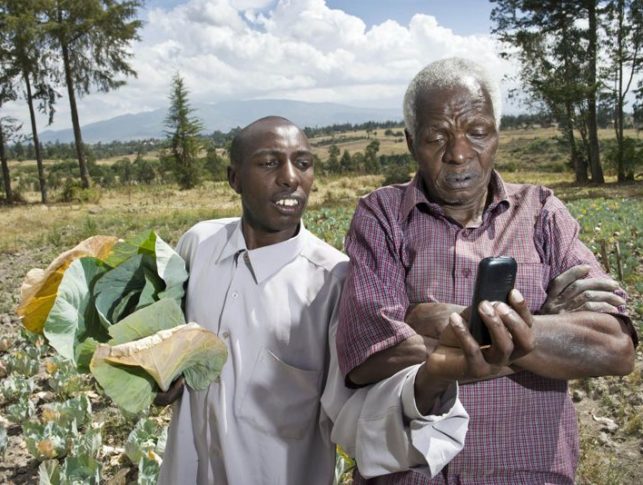Jamila Abass is a shining example of the young, innovative, tech-focused generation emerging throughout Africa. Her business, M-Farm – a tech solution that provides valuable services to Kenya’s farmers – is a fantastic model of how technology is breaking down long-standing barriers. Early in her life, Abass worked tending crops in her family’s small kitchen garden. She grew and sold kale and coriander, giving her perspective on the agricultural industry, and playing a key part in her later interest in rural development. Abass proved to be a gifted student. She went on to study Computer Software Engineering at the Université Abdelmalek Essaâdi Tétouan in Morocco. After graduating in 2009, Abass teamed up with fellow tech entrepreneur Susan Oguya. They were both perturbed by the state of Kenya’s farming industry. Abass said, “The newspapers always had sad stories of farmers getting exploited by middlemen.” She explained that unscrupulous intermediaries were leveraging farmers into selling their produce for a fraction of their true market value; a situation which had been ongoing for decades.
Tackling the exploitation of farmers
Abass and Oguya wanted to develop a solution to tackle this issue. They conceptualized a digital platform that farmers could access through their mobile phones. They theorized that this marketplace would arm farmers with the information they needed to protect themselves and make smarter decisions. Looking back, Abass explained “They (farmers) had no information and no alternative market. We wanted to close that information gap between the farmers and the market”.
Soon after coming up with the idea, the pair took their concept to the IPO48 challenge, a kick-starter designed to support promising online solutions. Abass and Oguya won a US$10,000 dollar prize and subsequently began building M-Farm. M-Farm began as an SMS service by which farmers could check the daily prices for over 40 popular crops, and identify buyers throughout the country. Through partnering with renowned tech startup M-Pesa, M-farm allowed farmers to make and receive mobile payments. With mobile phone technology widely available across Kenya, M-Farm is an affordable option for even the poorest rural farmers. By 2012, Abass had over 5,400 users on the platform. These farmers had managed to more than double their profits, thanks to the direct links M-Farm offered with legitimate buyers and exporters.
Progress, but some still struggling
In late 2012, M-Farm made the finals of the highly prestigious Unreasonable Institute Exhibition. M- Farm’s success was on full display, and Abass’s excellent presentation brought valuable exposure to the firm, ultimately attracting further investment. With financing secured, Abass and the team looked at ways that they could improve their service. They identified that for some farmers, simply providing them with pricing information was not enough to improve their fortunes. Many were still struggling to access the markets and get a fair price for their crops.
Abass identified that rural growers were producing in low volume, and that for major buyers, it was impractical and expensive to acquire the produce they needed from multiple small-scale enterprises. To counter this, M-Farm launched its group selling tool this enabled local farmers to form cooperatives, making their produce more attractive and easier to sell. Abass quickly extended the cooperative model by rolling out a buyer's cooperative feature, whereby farmers can band together and negotiate better purchases of fertilizer, seeds, and equipment.
International ambitions
The M-Farm platform has evolved to become a powerful and promising tool. As Abass said, “There are so many things you can do with the technology.” Today the platform offers transport services to farmers through partnerships with local logistics and haulage businesses. M-Farm now also arms its members with valuable industry knowledge. For instance, farmers can access expert agricultural advice, forecasts for future crop demands, or guidance on international regulations such as prohibited chemicals and pesticides.
Abass has also made inroads into the international market, establishing links with major retailers in Europe who are keen to run a socially responsible supply chain. With over 22,000 clients now thriving in Kenya, it’s clear Abass has a seriously effective business. She now intends to scale M-Farm globally, bringing its considerable benefits to farmers in other emerging countries. The story of Abass and M-Farm signifies how entrepreneurship and technology are changing the face of Africa.

